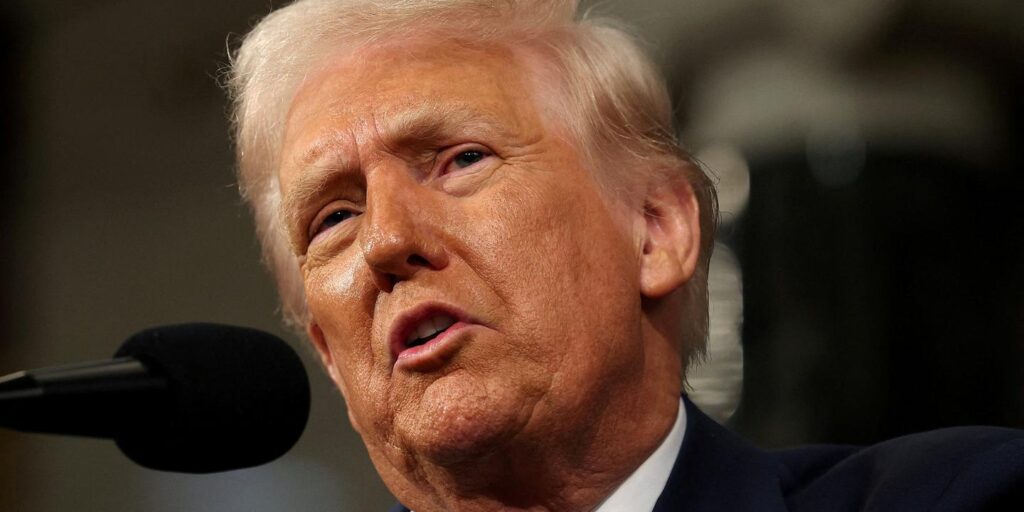The State Department has offered up to $3m for information leading to the arrest of Giovanni Vicente Mosquera Serrano.
The United States Treasury Department has sanctioned the alleged leader of Tren de Aragua (TDA), a Venezuelan gang that the administration of President Donald Trump has used as justification for its immigration crackdown.
In a statement released on Tuesday, the Treasury’s Office of Foreign Assets Control said Giovanni Vicente Mosquera Serrano was not only sanctioned but also indicted by the Department of Justice.
According to unsealed court documents, Mosquera Serrano faces charges related to drug trafficking and terrorism. He was also added to the FBI’s Ten Most Wanted list, with a $3m reward offered for information leading to his arrest or conviction.
In the statementTreasury Secretary Scott Bessent accused Tren de Aragua, under Mosquera Serrano’s leadership, of “terrorizing our communities and facilitating the flow of illicit narcotics into our country”.
It was the latest effort in the Trump administration’s campaign to crack down on criminal activity that it claims is tied to the proliferation of foreign gangs and criminal networks in the US.
Earlier this year, the Trump administration designated Tren de Aragua and other Latin American gangs as “foreign terrorist organisations”, a category more commonly used to describe international groups with violent political aims.
But Trump has used the threat of criminal networks based abroad to justify the use of emergency powers during his second term.
For instance, the Trump administration has claimed that Tren de Aragua is coordinating its US activities with the government of Venezuelan President Nicolas Maduro. That allegation was then used to justify the use of a rare wartime law: the Alien Enemies Act of 1798.
Claiming that the presence of groups like Tren de Aragua constituted a foreign “invasion” on US soil, Trump leveraged the Alien Enemies Act as the legal basis for pursuing the expedited deportations of alleged gang members.
More than 200 people were sent to a maximum-security prison in El Salvador, where many of them remain to this day.
Those deportations have drawn widespread criticism, along with a slew of legal challenges. Critics have said that the expedited deportations violated the immigrants’ rights to due process. They also pointed out that many of the deported men did not have criminal records.
Lawyers for some of the men have argued that they appear to have been imprisoned based on their tattoos and wardrobe choices. The Department of Homeland Security, however, has disputed that allegation.
At least one top US official has acknowledged that Maduro’s government may not direct Tren de Aragua.
An April memo from the Office of the Director of National Intelligence, obtained by news outlets like NPR and The New York Times, likewise cast doubt on the idea that Venezuela was controlling the gang’s movements in the US.
Rather, the memo said that the Maduro government likely sees Tren de Aragua as a threat.
“While Venezuela’s permissive environment enables TDA to operate, the Maduro regime probably does not have a policy of cooperating with TDA and is not directing TDA movement to and operations in the United States,” the memo reads.
Last July, the US and Colombia offered joint multimillion-dollar rewards for information leading to the arrest of Mosquera Serrano and two other men believed to lead Tren de Aragua.
The group was also sanctioned in the same month as a transnational criminal organisation for “engaging in diverse criminal activities, such as human smuggling and trafficking, gender-based violence, money laundering, and illicit drug trafficking”, according to a Treasury Department statement.
Numerous countries in Latin America have struggled with the gang’s rapid growth, which has been linked to political assassinations and widespread human trafficking, though experts say there is little to suggest the gang has infiltrated the US.


